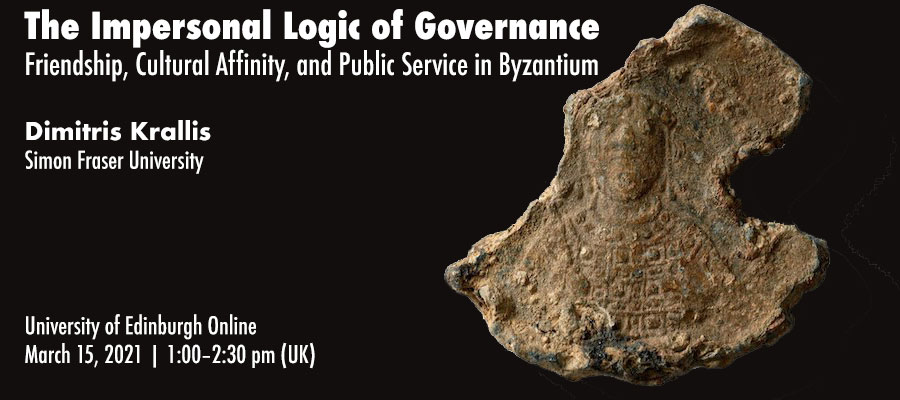The Impersonal Logic of Governance: Friendship, Cultural Affinity, and Public Service in Byzantium, lecture by Dimitris Krallis (Simon Fraser University), University of Edinburgh online, March 15, 2021, 1:00–2:30 pm (UK)
Much as the line dividing the modern from the pre-modern bears the imprint of the theoretical work of Gellner and Anderson on the nation, our reading of ancient and medieval bureaucracies is inflected by an often unstated and mostly implicit reliance on Weberian ideal types. This paper engages with Max Weber as it examines ways in which readings of Byzantium may help us think about the aforementioned divide. By addressing the question of impersonal governance, as it may be followed in the letters of this most 'personal' of Byzantine authors, Michael Psellos, it questions assumptions of what is possible when we think about the way the Medieval Romans run their polity.
Dimitris Krallis is a full professor at Simon Fraser University and the director of the SNF Centre for Hellenic Studies. Prof. Krallis is an expert in eleventh-century Byzantium and his most recent monograph is entitled: Serving Byzantium's Emperors: The Courtly Life and Career of Michael Attaleiates (New York, 2019).
Lecture is organized by the ERC-funded PAIXUE project at the University of Edinburgh.
Advance registration required.
